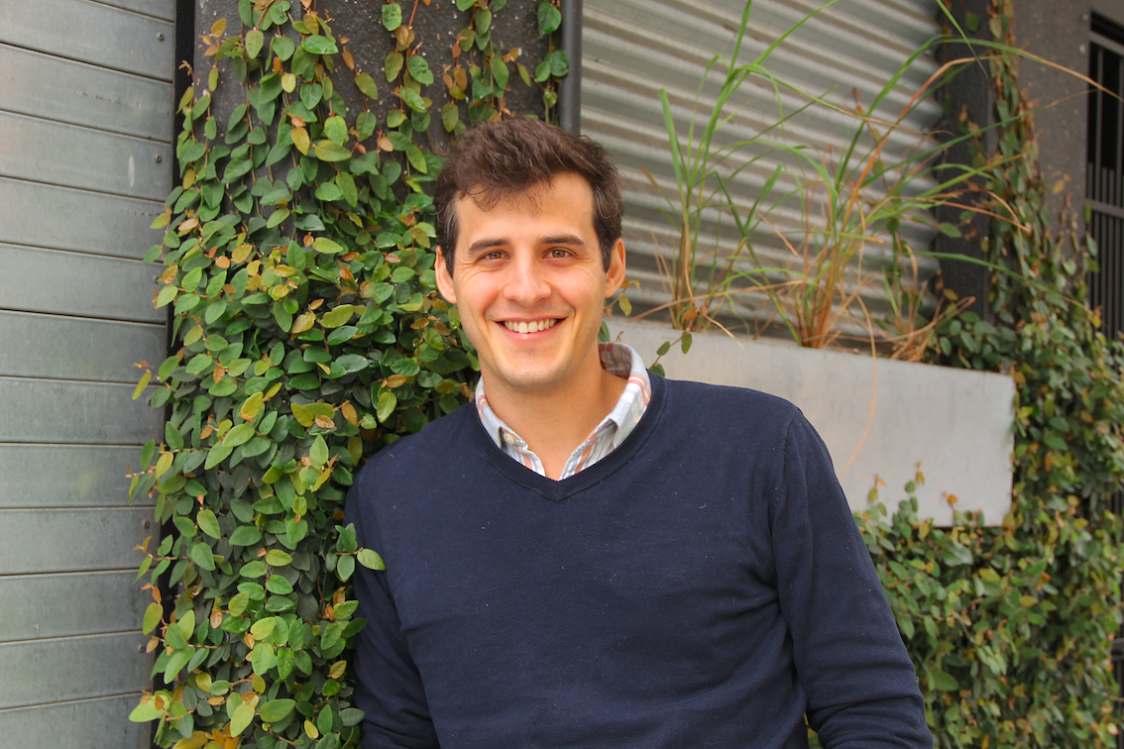Philip Winter is co-founder and CEO of Nebia, currently reinventing the way people interact with water in their daily lives. Nebia is a San Francisco-based startup that has built a new shower system based on a better experience, beautiful design, and up to 70 percent water savings. The company is backed by leading investors in Silicon Valley, including Tim Cook (Apple), Eric Schmidt (Google), and Y-Combinator, and has been featured in media outlets like The New York Times, The Wall Street Journal, and CNBC. Prior to Nebia, Philip was a Princeton-in-Latin America Fellow, and he studied at the University of Pennsylvania.
 What do you do every day?
What do you do every day?
I spend the majority of my time meeting with people, working through day-to-day activities in sales, marketing, and operations. I also spend time touching in with our product and engineering team, interviewing candidates, and talking with investors.
How did you come up with the idea of Nebia?
I was living in Mexico City and working at Endeavor, a nonprofit that focuses on helping entrepreneurs scale their companies. While in Mexico, I met Carlos, one of my co-founders. He had been working on the beginnings of Nebia as a side project, as a way to save water at a large chain of fitness clubs that he ran. We started working together and quickly realized we could build a company with a strong set of values and global ambitions. Then we picked up and moved to San Francisco.
Is your leadership team composed of Christians?
Not everyone at our company shares my faith, but all of them have incredibly high standards, treat others with respect, and share my values. The diversity of our work environment has been a sharpening mechanism and tool for my sanctification, and I’ve had opportunities to embody my faith during stressful times or times when our values have been tested. Going through Praxis, a faith-based incubator for Christian entrepreneurs, helped to ground my vision and mission.
Why is water conservation a compelling vision for you?
The decorative plumbing industry makes ubiquitous products that we use every day—showerheads, faucets, hoses. Yet, when it comes to our water consumption, we’ve accepted the status quo—in spite of its obvious brokenness. The industry hasn’t innovated in decades.
Plus, the consequences of our water waste could be dire. The world’s population continues to grow by the billions, but our water supply doesn’t. We need to figure out ways to use water much more efficiently. It will become the most pressed natural resource, since it is basic to life.
How do you see your work as loving your neighbor?
Of course, our work aims to care for our neighbors—both locally and globally, both present and future. But the most profound effect I can have is on our team. We spend eight to ten hours a day with our colleagues, which is more than we spend with our families. Our workplace environment shapes and influences us.
I hope to create an environment that’s challenging and stimulating for the mind, and nourishing and nurturing to the soul. If we can create an environment that achieves those things, then we’re equipping people to bless others—not just their colleagues and customers, but their families, their friends, their faith communities, their neighbors, and more.
I’m also aware that relationships can suffer. We can misunderstand, hurt, or take each other for granted. We’re human. I try to love my colleagues, then, by being self-aware and acknowledging my own brokenness. Pride is one of the biggest threats to collaboration and to giving witness to Christ’s love, compassion, authority, and dominion.
Editors’ note: TGCvocations asks practitioners how they integrate their faith and their work. Interviews are condensed and edited.
Is there enough evidence for us to believe the Gospels?
 In an age of faith deconstruction and skepticism about the Bible’s authority, it’s common to hear claims that the Gospels are unreliable propaganda. And if the Gospels are shown to be historically unreliable, the whole foundation of Christianity begins to crumble.
In an age of faith deconstruction and skepticism about the Bible’s authority, it’s common to hear claims that the Gospels are unreliable propaganda. And if the Gospels are shown to be historically unreliable, the whole foundation of Christianity begins to crumble.


































